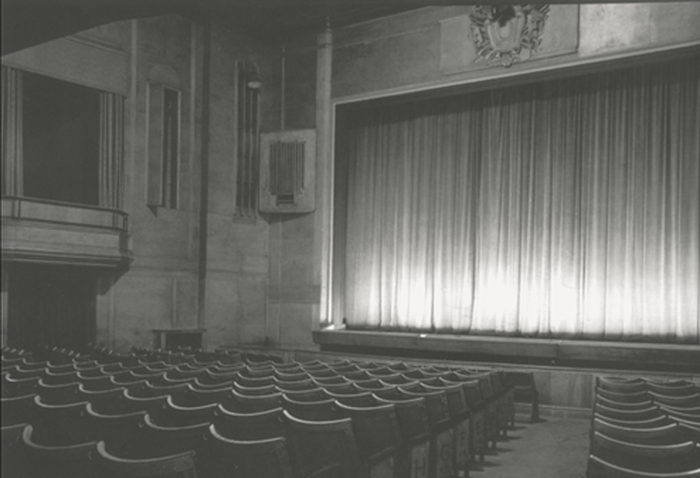The Cambridge theatre scene: is anything about this normal?
Jude Crawley interviews five drama society presidents from unis across the country to find out

Cambridge students are lucky to have such a theatrically endowed university. Theatre is everywhere in this city, from the gongs and the gowns to the bug-shaped clock. Then, there’s the theatre of the stage. As a student here, the funding, scale, and opportunities for the performing arts seem unique. But just how unusual are they really? Is this normal for a university, or is it another avenue of the privilege of a Cambridge education? I interviewed drama society presidents from universities across the UK: from Bristol and UCL, up to York and Edinburgh, and even from our rival Oxford, to find out.
“Eye watering prices limit the number of large-scale productions at UCL and Bristol”
Perhaps what makes Cambridge theatre seem so remarkable is the ADC, England’s oldest university playhouse. Originally ‘The Hoop Coaching Inn’, the dramaturgs of Cambridge have been performing, tucked away, on Park Street since 1855. Today, the ADC provides permanent access to a theatre space that is professionally managed with no hire fee. How special! Well, not quite. It turns out this is an experience unique… to Oxbridge. Oxford has two professionally managed theatres: Oxford Playhouse and The Birth and Taylor Studio.
This privilege does not extend beyond the small sphere of Oxbridge. Students at UCL and Bristol hire out venues for shows, and while some of these spaces put the ADC to shame – UCL have two productions a year in the 550-seat Bloomsburg Theatre on the West End – costs range from £1,000 to £10,000 depending on the venue. These eye watering prices limit the number of large-scale productions that the UCL and Bristol drama societies can stage to around eight a year.
“The theme of Oxbridge privilege repeatedly stood out”
The shared frustration in the presidents’ voices when talking about the impacts of both cost and flaky venues limiting the number of productions made me reflect on the privilege behind the age-old complaint: “There’s just so much Theatre in Cambridge! It’s impossible to pick.”
Comparatively, York and Edinburgh are able to stage more than Bristol and UCL courtesy of venue ownership. The University of York stages 32 productions per year in a single 50-seat student-run venue, lovingly named The Drama Barn. Similarly, Edinburgh stages 40 in The Bedlam Theatre, a 90-seat venue also ran entirely by students. Having been involved in the administrative hullabaloo that is the management of a student-run theatre, I can confirm that those are some seriously impressive numbers.
Through my research, the theme of Oxbridge privilege repeatedly stood out. According to the ADC 2021-2022 report, there were 186 productions in the year, most of which were organised and performed by students. Guess who else is subjected to an overwhelming amount of amdram? In Oxford, there are around 150 productions staged a year.
“New writing [in Cambridge] doesn’t seem to receive the same focus as it does in London”
The performing arts models at the two universities do differ – in Oxford, budding thesps have to set up a production company, a functional bank account and social media branding, and their pitches to venues are far more comprehensive. Regardless, with the continual defunding of the arts, Oxbridge seems to be hoovering up an ever bigger share of amateur university drama.
My other major takeaway from these early-morning Zoom conversations, however, were the idiosyncrasies that each drama society had developed. Much of the drama scene at UCL, for instance, is devoted to new writing evenings and festivals, perhaps unsurprising given the strength of its English courses. There is a queer writing festival, a PhD-only writing festival, and an “anybody and everybody” writing festival. While Cambridge does stage many new writing plays, and also benefits from the Howard Downing New Writing Festival, new writing doesn’t seem to receive the same focus as it does in London.
Bristol and Edinburgh are the ancient Athens of drama scenes: firmly rooted in democratic values. Months before a slot, individuals pitch shows to the entire drama society. Then, after a forum, discussion members vote on the show to go forward. Quirkier still, York has a casting system where, after the 16 shows for that term are given out and everyone has auditioned for the parts they want, all the directors sit in a room together and discuss who gets to cast who. This is to avoid any single actor being overstretched or double booked in a term. With the burnout state of some of the over-committed Cambridge thesps, this might be an idea to pinch (*cough cough* incoming CUADC committee).
From my conversations, I seem to have proven my hypothesis: we are ridiculously spoiled in Cambridge. Shocker, they are also ridiculously spoiled in ‘the other place’. No other universities have anywhere near the same quantity of shows or funding behind them. So, next time you hear someone moaning about the evil overlords of ADC management in the bar, remind them: we are the lucky ones, really.
 Interviews / You don’t need to peak at Cambridge, says Robin Harding31 December 2025
Interviews / You don’t need to peak at Cambridge, says Robin Harding31 December 2025 News / Downing investigates ‘mysterious’ underground burial vault 29 December 2025
News / Downing investigates ‘mysterious’ underground burial vault 29 December 2025 News / Unions protest handling of redundancies at Epidemiology Unit30 December 2025
News / Unions protest handling of redundancies at Epidemiology Unit30 December 2025 Lifestyle / Ask Auntie Alice29 December 2025
Lifestyle / Ask Auntie Alice29 December 2025 Features / ‘Treated like we’re incompetent’: ents officers on college micromanagement30 December 2025
Features / ‘Treated like we’re incompetent’: ents officers on college micromanagement30 December 2025









